Alan Shlemon has been one of my closest friends since the late 1990s, but after all these years, his answer surprised me. Late last year, our outreach team was about to sit down to dinner in his home, and I asked a version of this question: “What’s the minimum amount of training you think someone needs in order to have a successful conversation on a difficult topic?”
Alan Shlemon of Stand to Reason (right) interacts with a student at JFA’s “Stop and Think” outreach at UCLA in May 2016. Although we don’t know everything Alan was covering in this conversation, we do know for certain he was employing the two questions what and why and modeling the approach we discuss in this post.
Alan is a speaker at Stand to Reason (www.str.org), and like the trainers at Justice For All (JFA), he regularly equips Christians to talk about the most thorny and complicated topics in the culture. I expected Alan to say something like “four or five hours” since just one topic can bring up a myriad of facts, questions, and arguments, let alone all of the related topics people inevitably also raise.
Instead, Alan said he really only needed just a few minutes to teach people to use the Columbo Tactic. He was referring to asking questions that gather information and request reasons. (STR’s Greg Koukl named this tactic after the beloved, bumbling 1970’s detective who solved his crimes by asking questions.) That was it? All people need is to learn to ask a couple of questions?
I quickly realized, though, that Alan was simply reminding me of what I and other JFA trainers have been teaching for years: “Learn to ask two questions, and you can make an impact in any conversation on any topic with anyone anytime anywhere.” What two questions? The same ones to which Alan was referring: what and why. These questions help us gather information (What do you believe? What did you mean by that?) and ask people to give reasons for the claims they make (Why do you believe that? How did you come to that conclusion?). These two questions also “get us out of the hot seat and into the driver’s seat of the conversation,” as Greg Koukl has often said.
Now, I don’t mean you can ask these questions in any way and expect them to create productive dialogue. Obviously, we need to follow these questions up with “listening to understand.” We’ve also found that accompanying these questions with a desire to find common ground (“I agree… I think you’re making a good point”) and an attitude of humility (“I know I’m mistaken about some things, and you might have insight that will shed light on which of my beliefs are false”) helps the two questions make their impact. In this way you can also create a context in which the person is more likely to be open to a third type of question that challenges his or her beliefs.
So, if you’re afraid to engage friends or family in conversation about difficult topics, I suggest you focus on developing your ability to ask these two questions, what and why. How? Start practicing. What’s great about these questions is that you don’t have to do the heavy lifting. You only have to figure out what words need to be clarified and what parts of the person’s view are unclear (ask some question that begins with “what did you mean…?”). Then once you have the person’s view clarified, you can think of her view like the roof of a house. What does a roof need in order to be a roof? Walls. So you then ask the person to build walls that support her roof (ask some question that begins with “why do you believe…?” or “how did you come to this conclusion?”).
You can even practice this approach and these questions on topics that don’t have to do with controversial issues; I’m referring to the conversations you have with the people closest to you that become tense and frequently devolve into hurt feelings. Instead of assuming you know what your spouse or child or friend meant, ask “what did you mean when you said…?” Instead of assuming you know how she would support her view, ask “what reasons for this view are persuasive to you?”
I’m confident you’ll find that you can create productive conversations you never thought possible. In fact, people frequently report to our team during our campus events things like, “This was the best conversation I’ve ever had.” Sure, members of the JFA team have a lot of experience, and I consider them experts. But even someone with no experience, a conversation beginner, can experience the same extraordinary results. You can start today to develop these skills. Just focus on asking these two questions!
Thank you for partnering with us as we help pro-life advocates and Christians get started changing hearts and minds with simple tools like these.
Note: This letter is the third in a series of letters on conversation skills we teach volunteers that help them get started having conversations and encourage them to stay active. See the previous letters in the series:
“Be a Playmaker” (jfaweb.org/feb-2023)
“Thinking about the Unborn for the First Time” (jfaweb.org/may-2023)




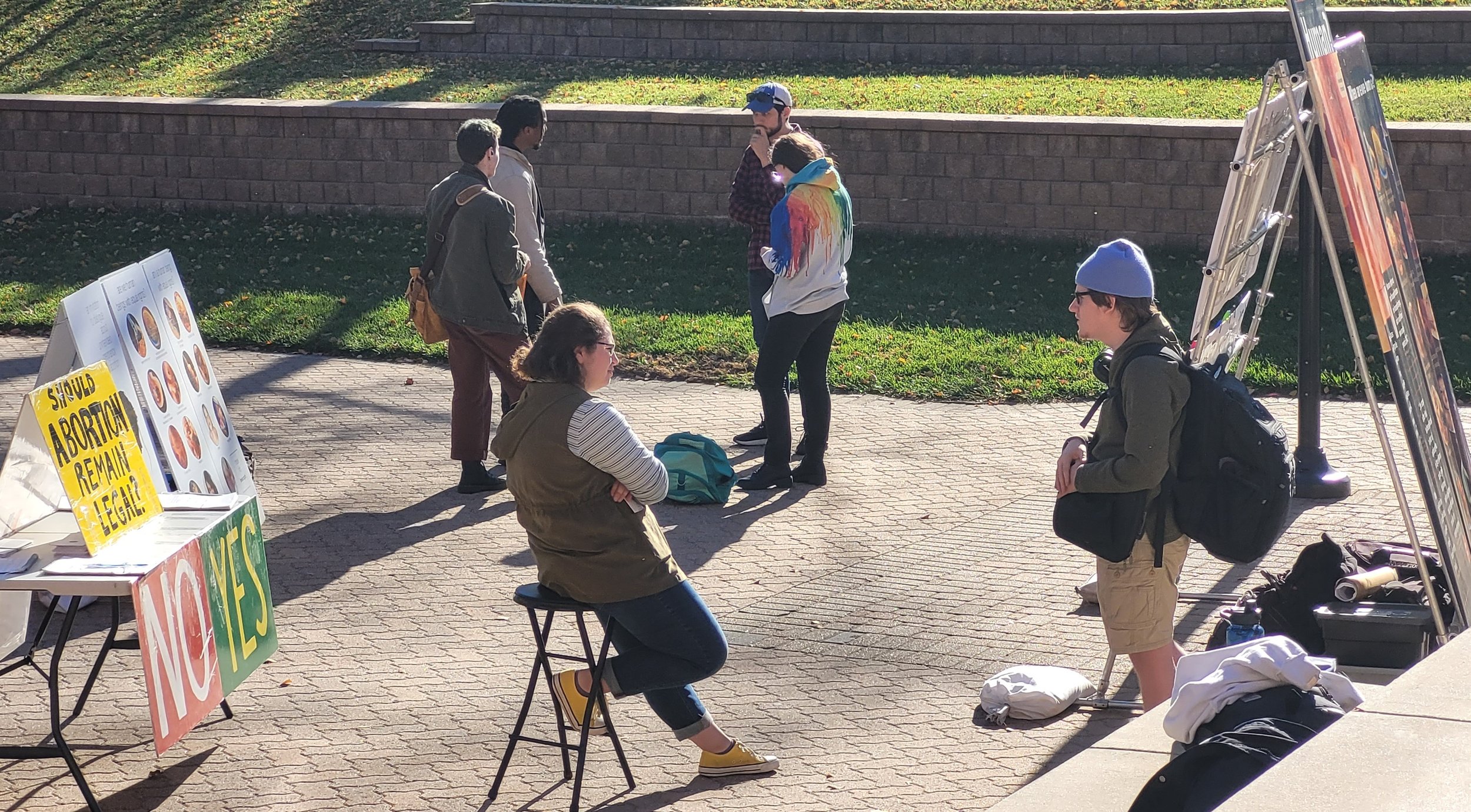
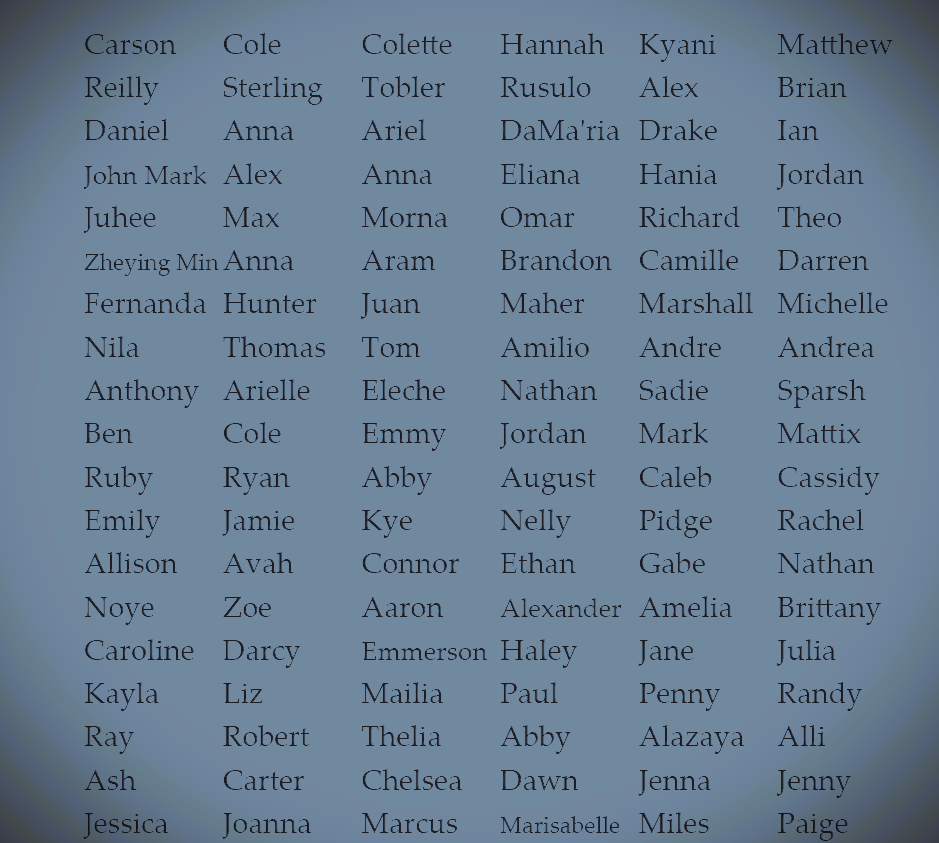
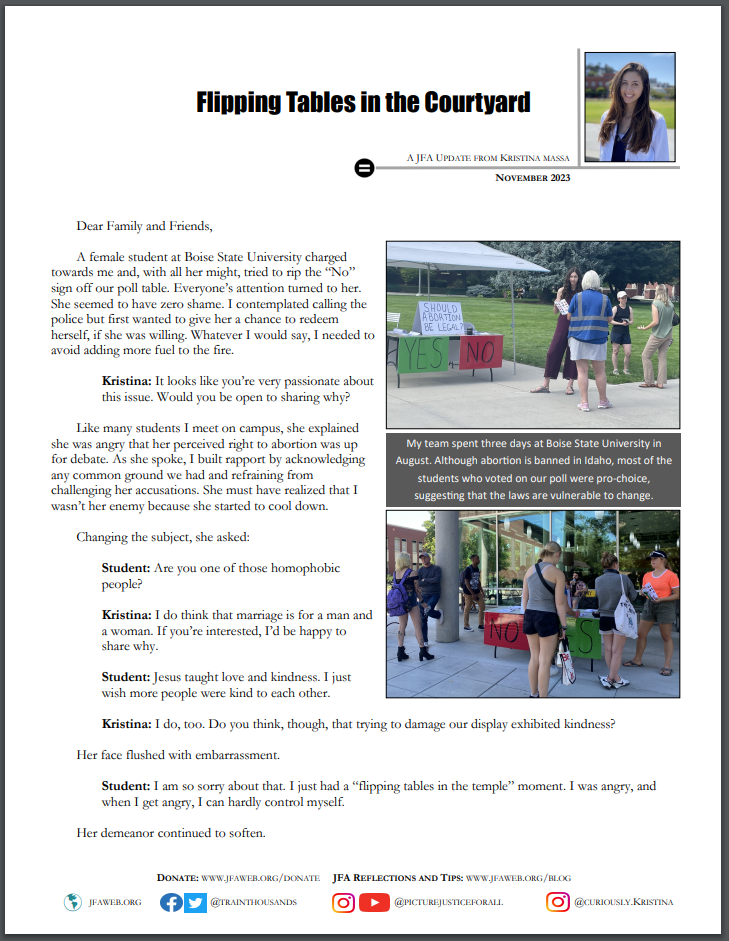






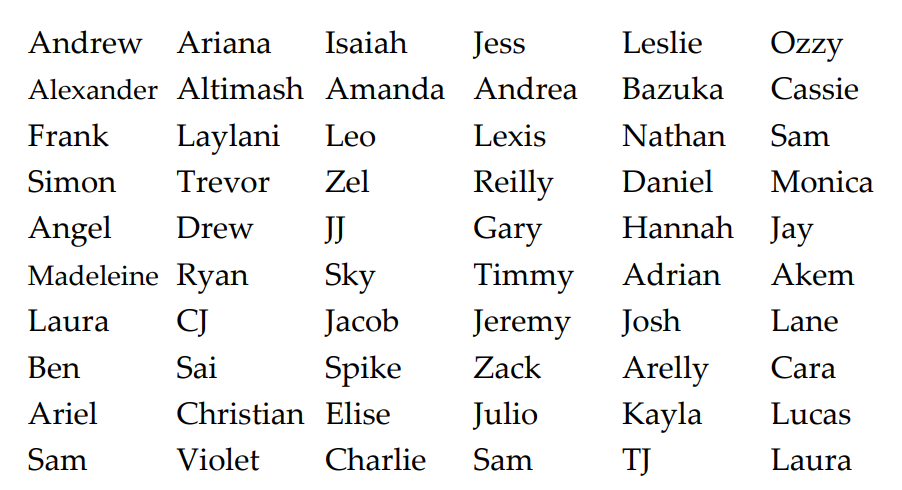
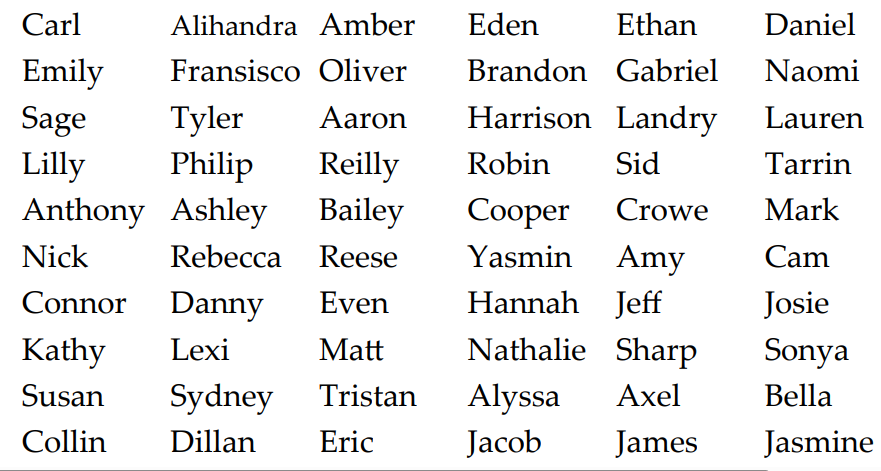


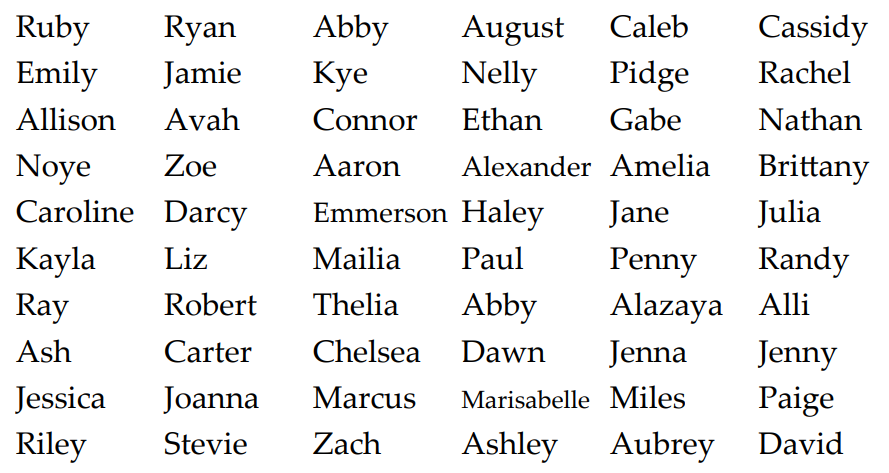
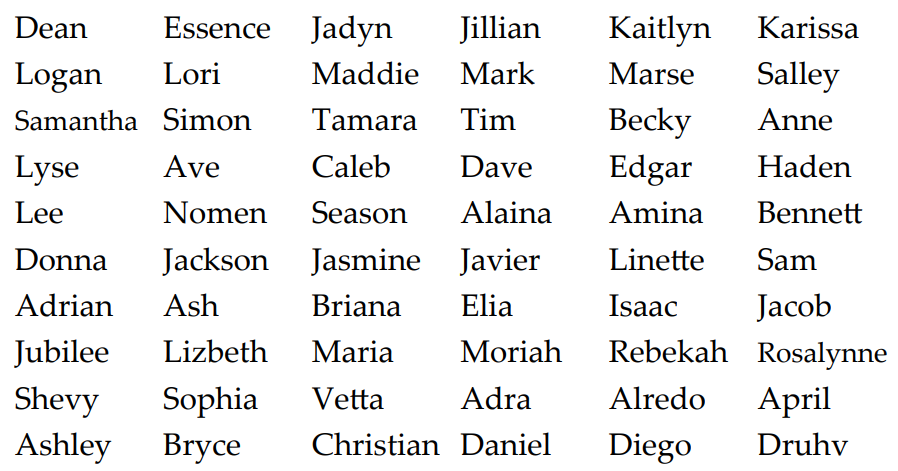


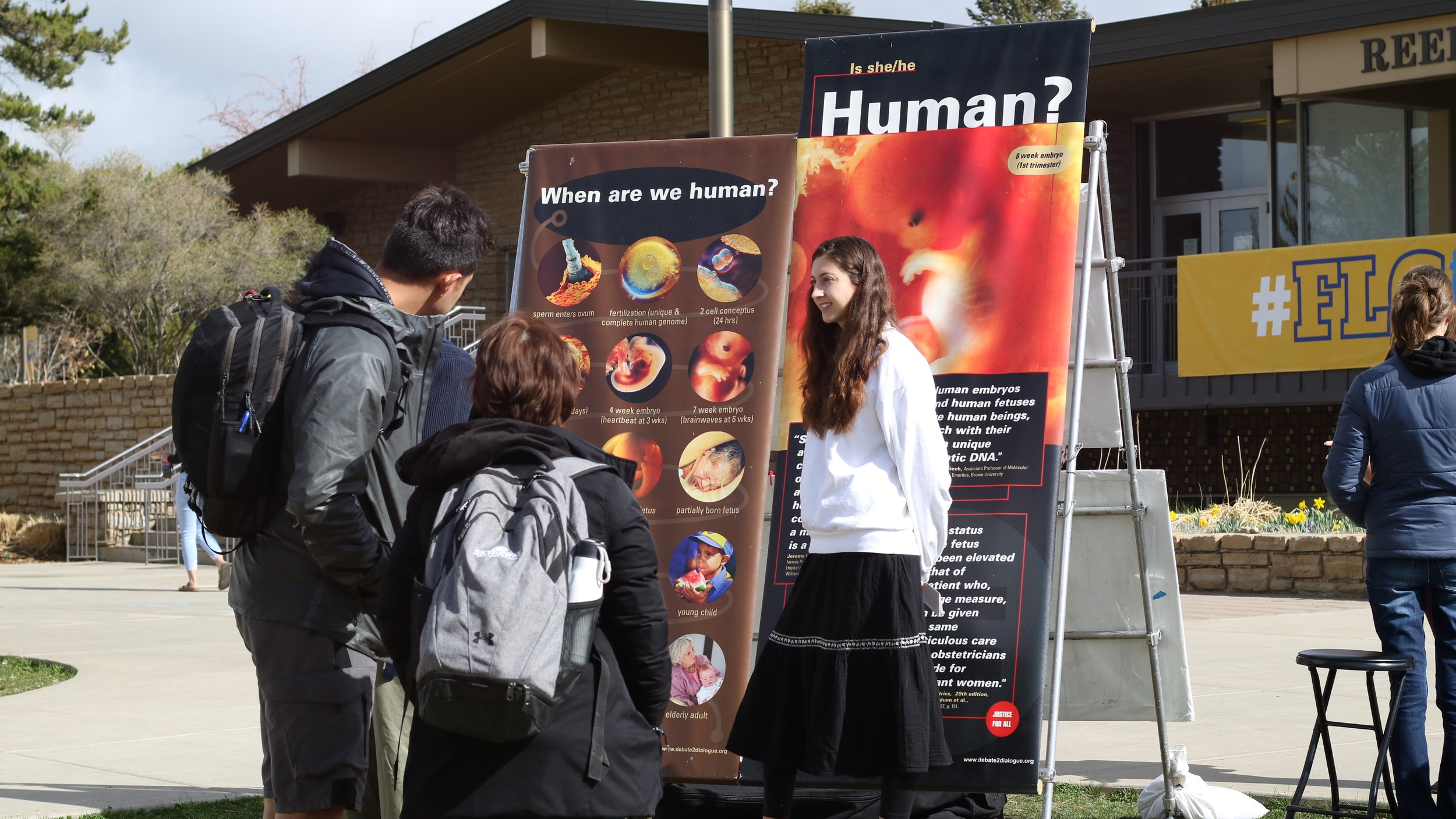
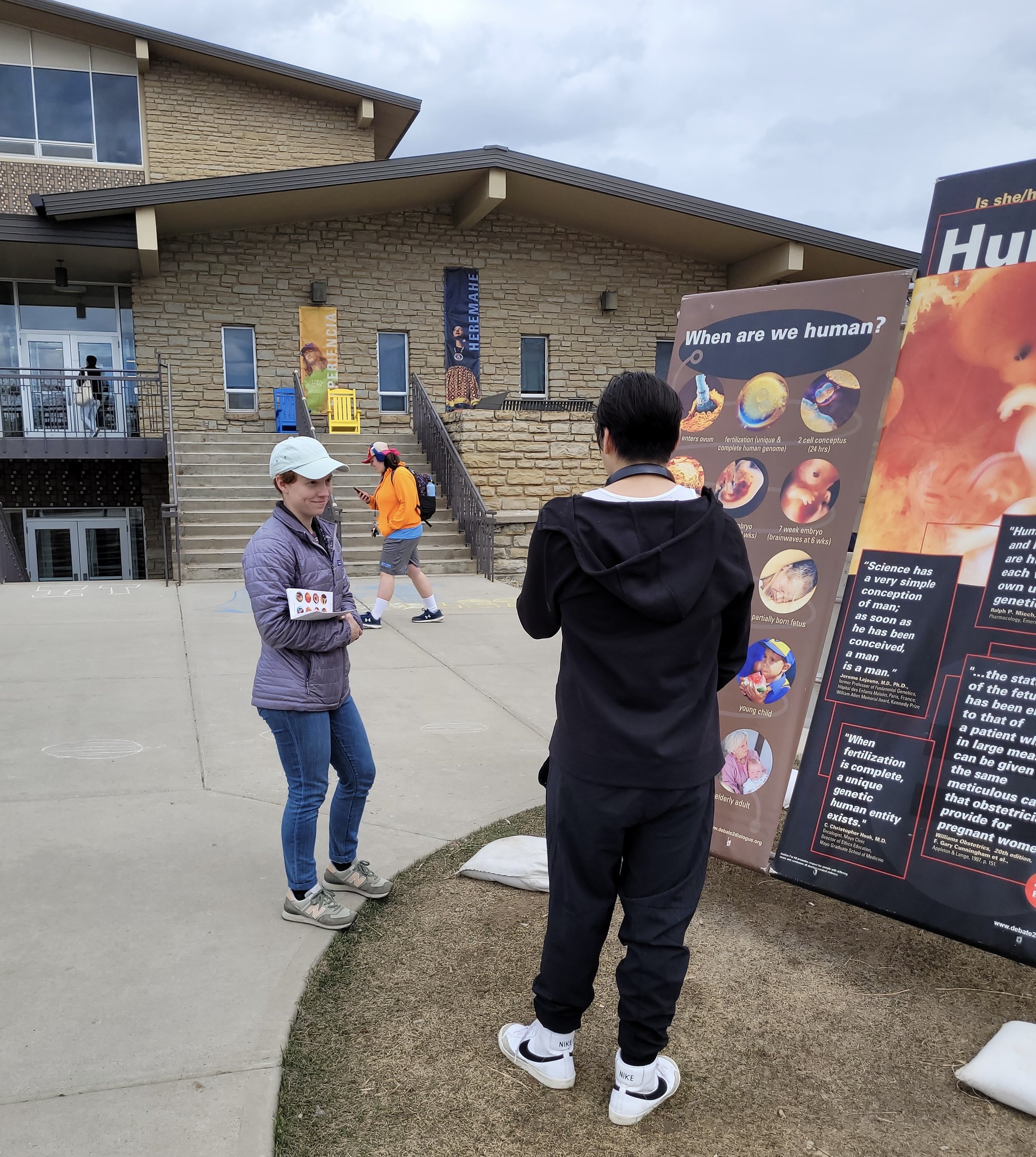





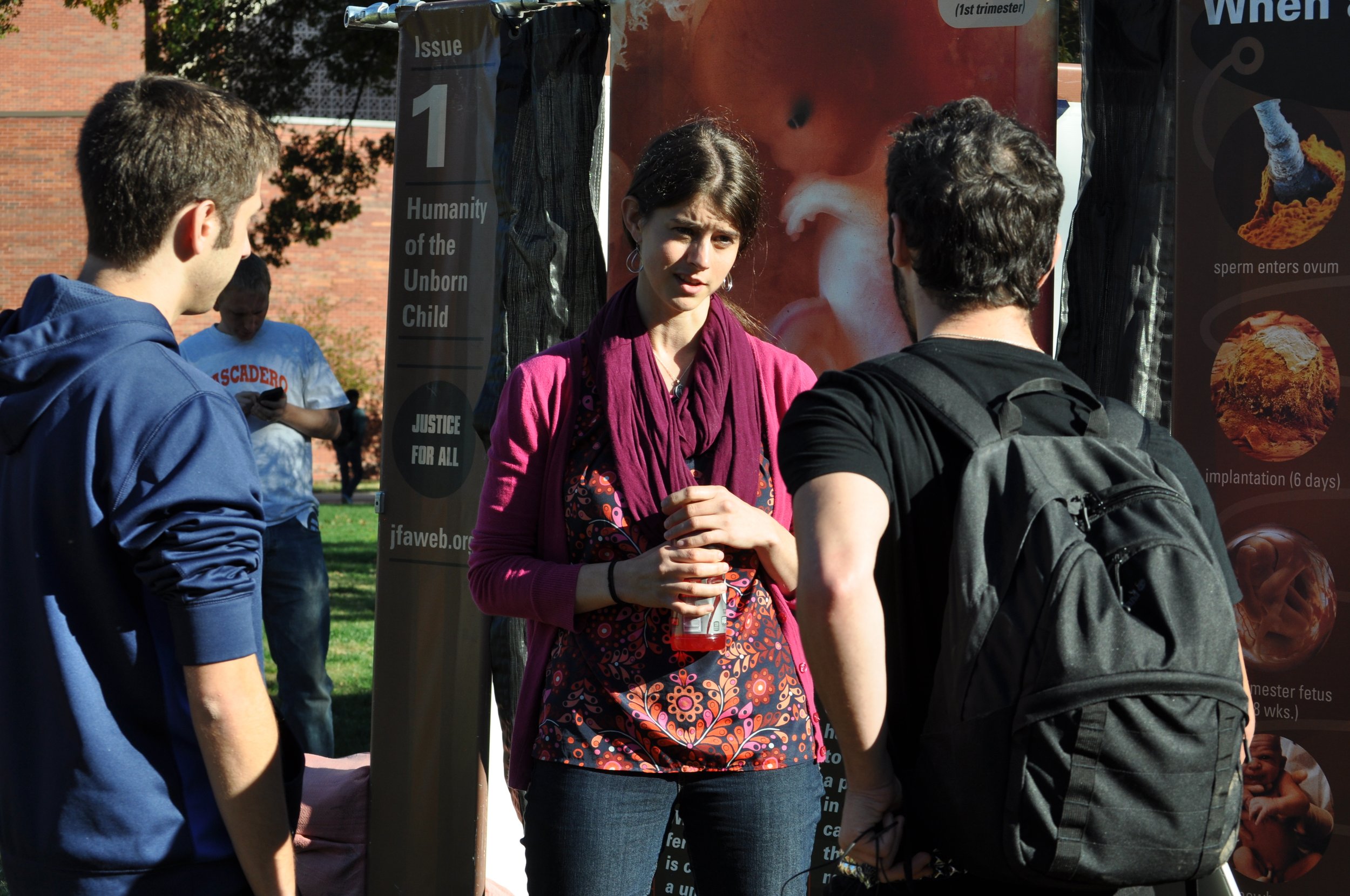


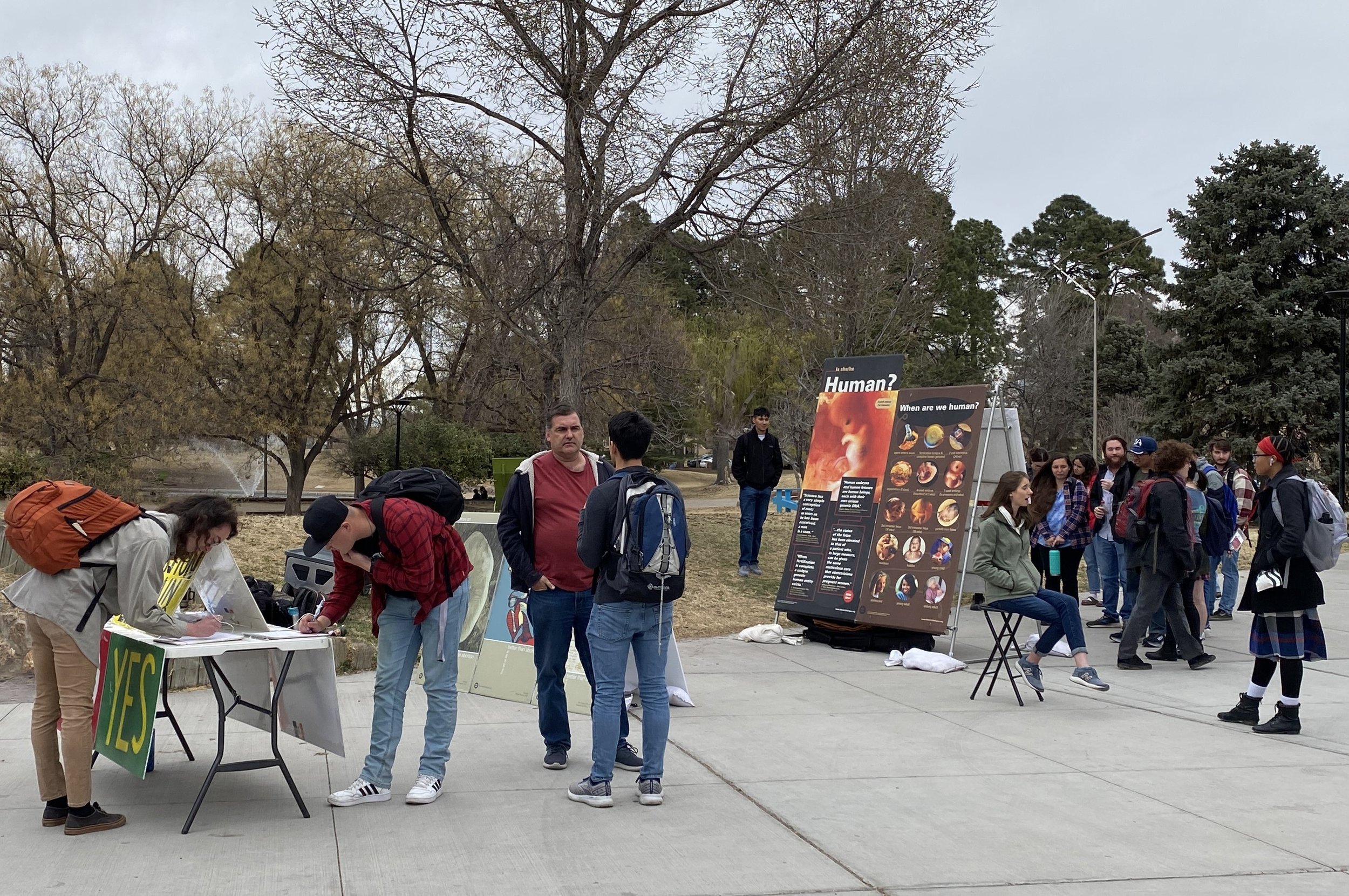














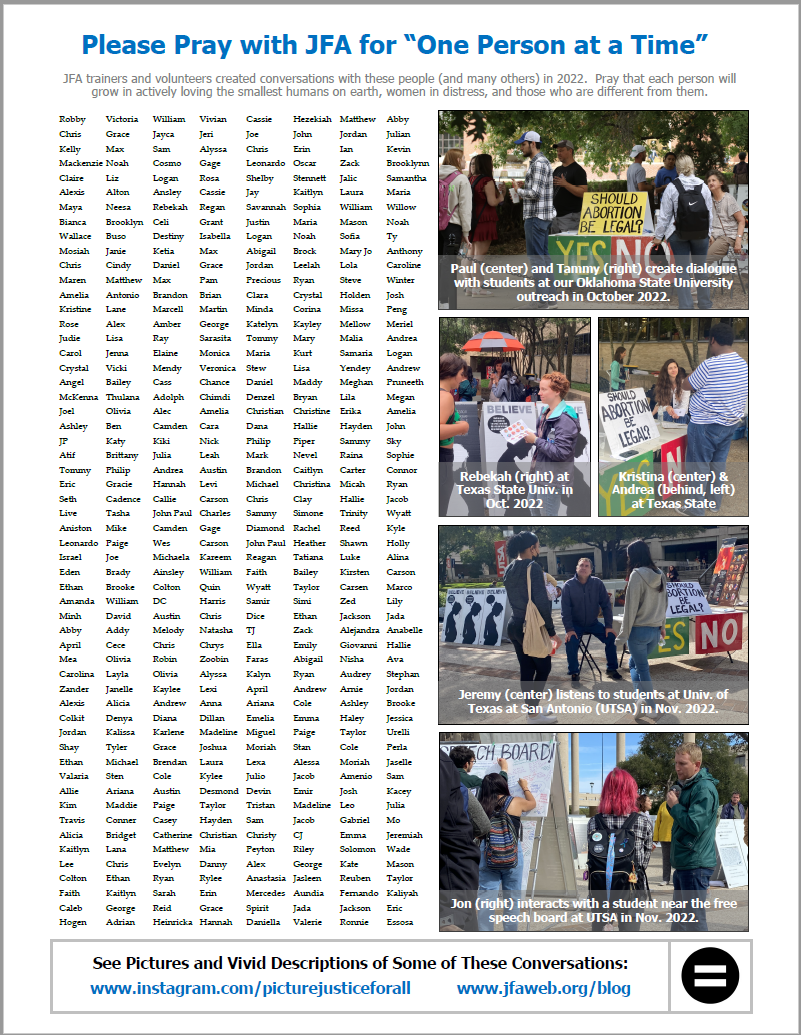

Seth (second from left) talks with a group of students at University of Northern Colorado while Catherine (left) and JFA trainer Kristina (near kiosk) listen. (September)